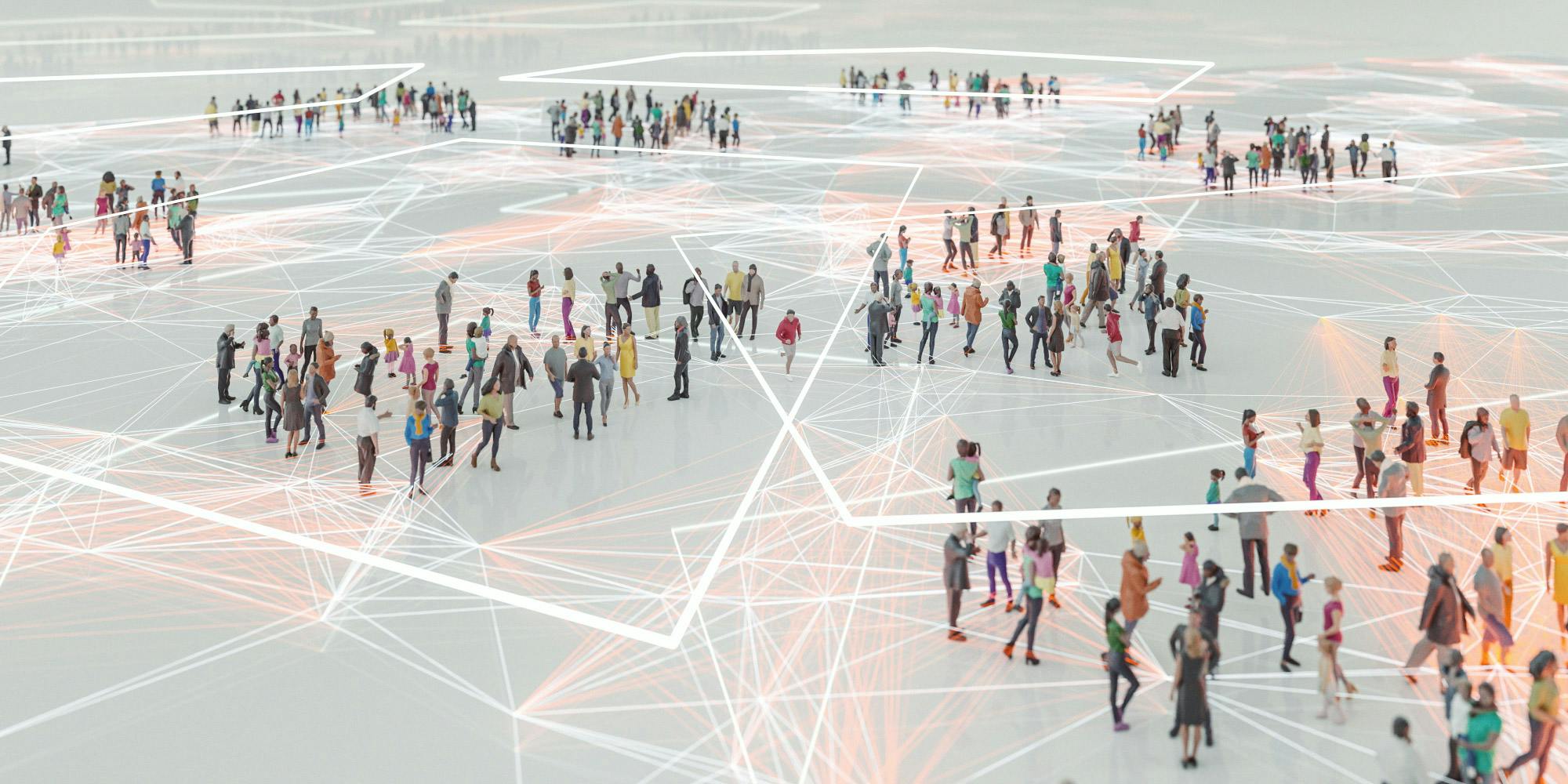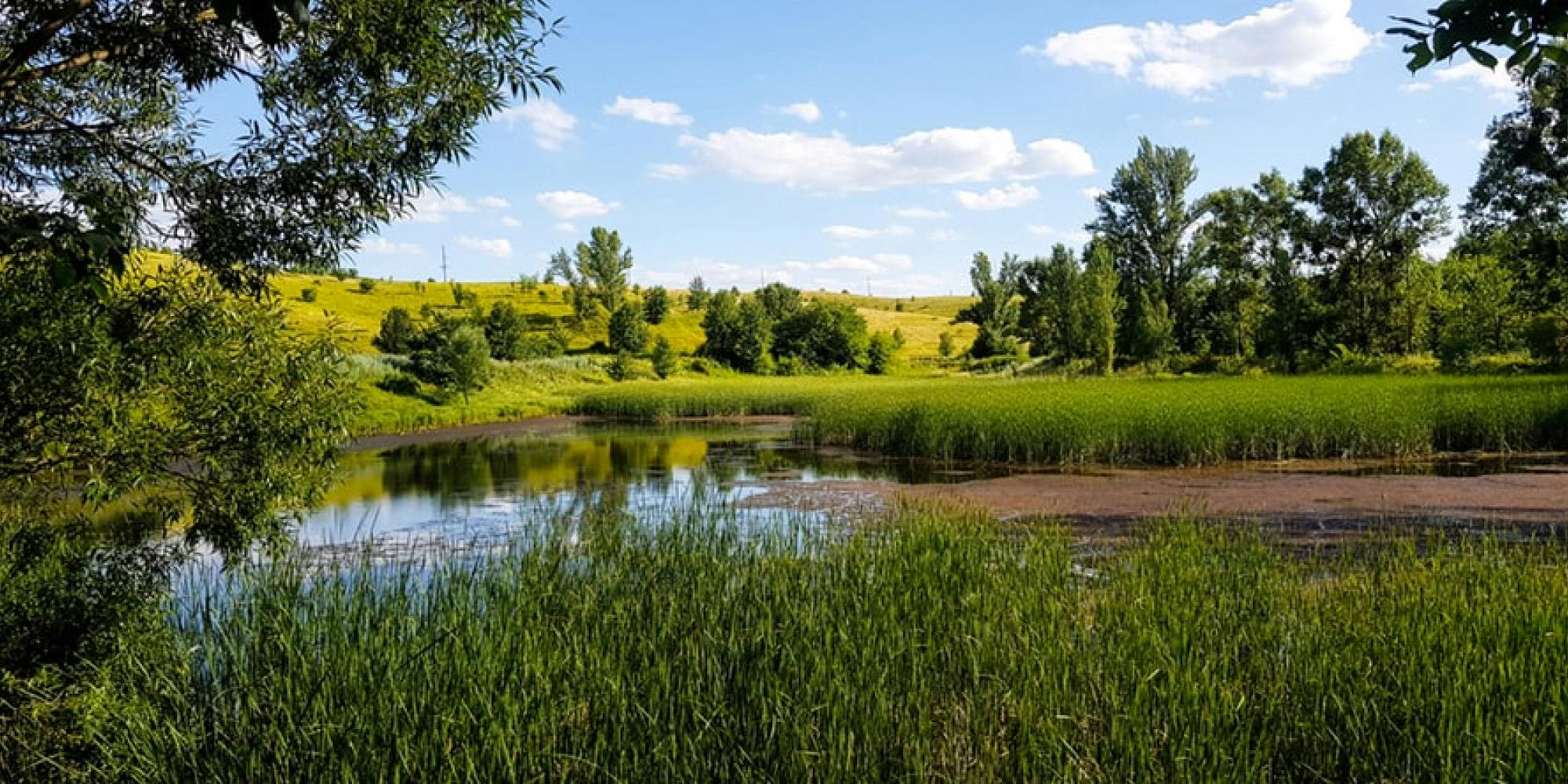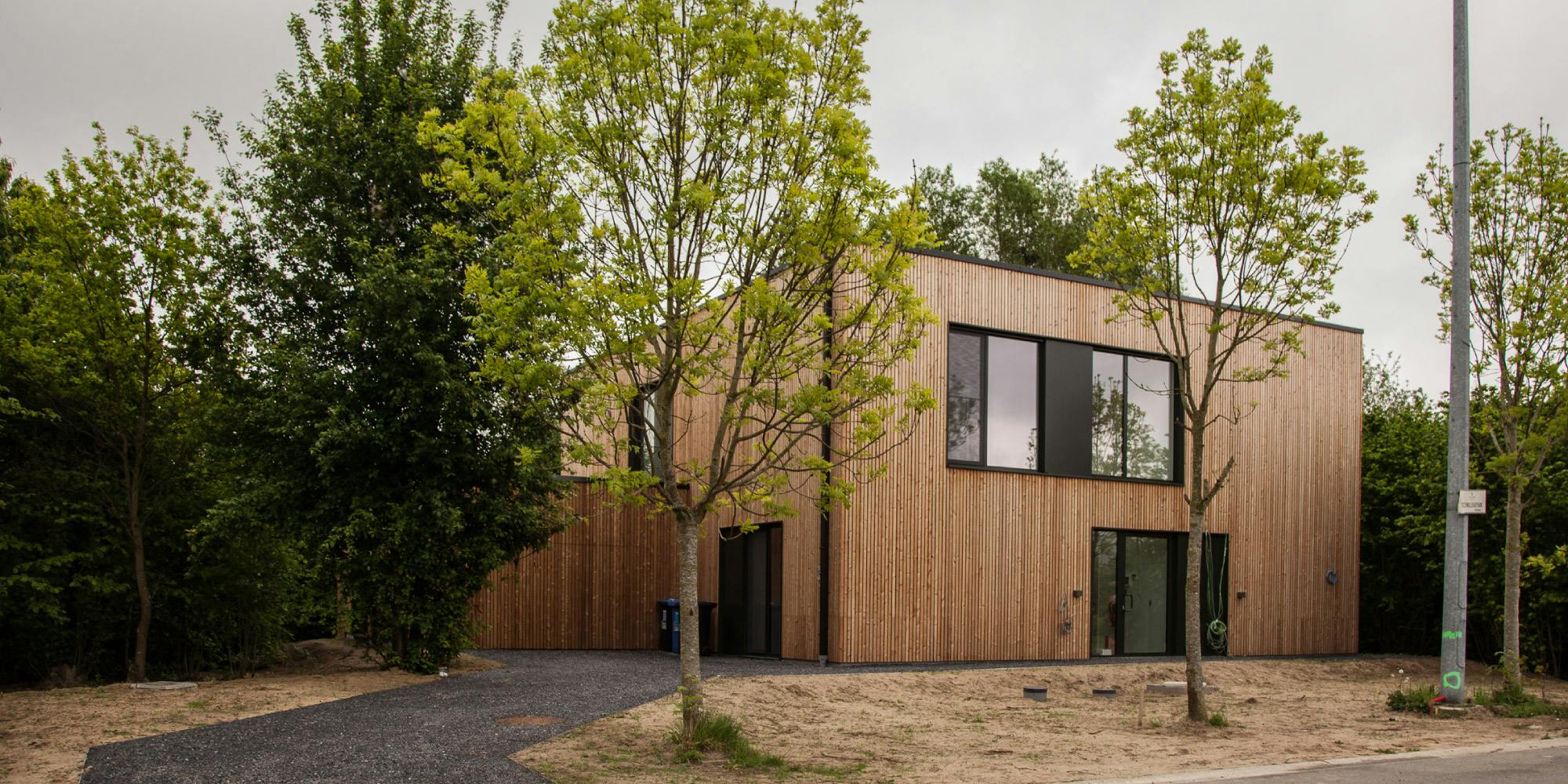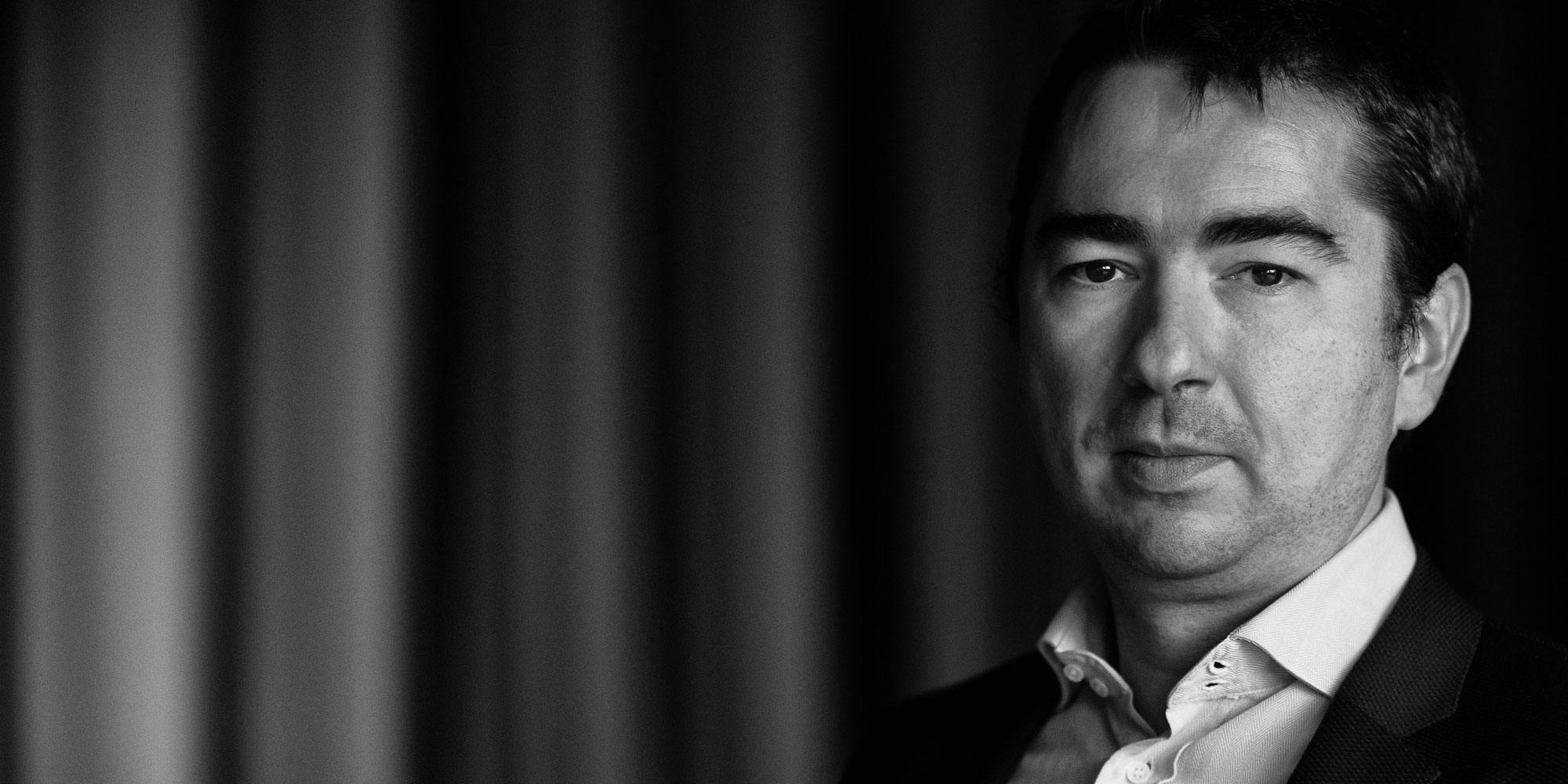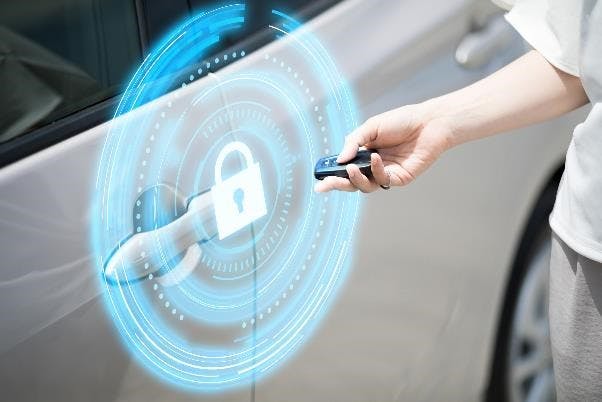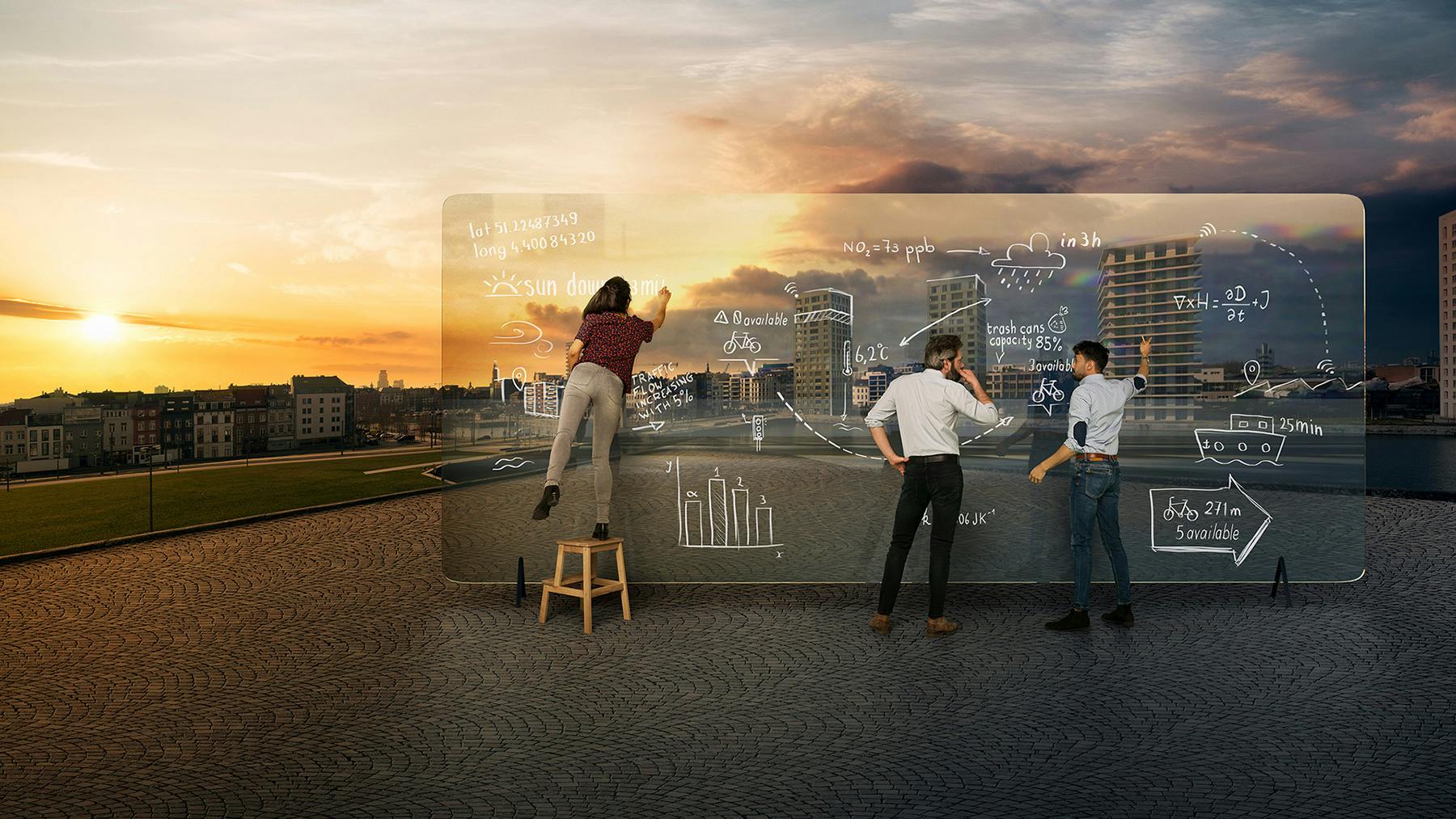
City of Things: amazing story with an open ending
How can technology help to create a more livable city? City of Things strived for six year to answer that question.
For centuries, cities were places where people could meet each other. Breeding grounds for creativity and new ideas. But also for challenges pertaining to air and water quality, mobility, noise pollution, ...
We call such challenges wicked problems. They’re complex and span multiple domains. Most importantly: in a constantly changing world, we will never be able to fully solve them. That’s no reason not to confront them. By facing them head-on, we will make progress. And allow cities to confirm their reputation as hotbeds of innovation.
That’s certainly the case when we use technology and data to tackle these challenges. In the context of City of Things, that was the mission of a multidisciplinary imec team – together with citizens, companies and imec research groups at Flemish universities.
By means of an array of projects, we dove into the issue of how governments can shape digital transformation. Thus offering a stable framework to companies who’ll eventually develop the applications.
One great example is our exploration of the urban digital twin: a digital replica of the city in all its complexity. It’s a crucial tool for testing the extent of governmental decisions – over several policy domains.
The City of Things program laid the groundwork for a region in which technology can fully contribute to a more enjoyable and sustainable life for everyone.
First digital testing ground in Antwerp
City of Things was founded in 2016 – right before the fusion of imec and iMinds. Within the context of several European projects, we wanted to investigate how hardware and software could be combined to create smart-city solutions.
In 2018, we were ready to put theory to practice. Together with the City of Antwerp, we planted the Antwerp Smart Zone, a digital testing ground in the center of the city.
Using tools such as surveys and user research, we investigated which challenges citizens found most important. And we equipped our living laboratory with smart sensors and wireless communication systems.
From smart city to smart region
We extended this approach the whole of Flanders. In many cities and municipalities, City of Things launched pilot projects to assess technological solutions for local challenges.
That always led to new insights. Not just pertaining to the development and application of a technology. But also to the practical execution of smart-city projects. We gained a clear view on issues like:
- How do you match the need for information with the importance of privacy?
- How do you balance the stakes of everyone involved?
That’s how City of Things grew into a technological lab. An opportunity to find out what works, and what doesn’t. About which we always communicated openly, so that others could learn from our experience.
Most important lesson: need for shared agreements
Cities and municipalities are driving the digital transformation. That’s a good thing. Because who else has a better understanding of local challenges? Nevertheless, Flanders should not become an archipelago of smart islands.
Take intelligent traffic lights. Those should work similarly in Antwerp as in Ghent. That saves everyone the trouble of developing them from scratch. And makes it a lot easier to link them to other systems.
In other words, what we need is a shared technological ecosystem and standardized approach. That facilitates the sharing of knowledge and measurement results across municipal borders and policy domains.
In that respect, a lot was achieved by Smart Flanders, a program of the Flemish Government and imec-SMIT. The goal was to support Flemish cities and Brussels with their open data policies. Among other things, that led to an Open Data Charter, containing twenty joint principles for the sustainable sharing of data.
In 2020, the Flemish Open City Architecture was conceived. Its name says everything about its ambition: to offer one uniform architecture for smart-city solutions in Flanders. One that offers strong footing to local governments and businesses. And thereby accelerates the evolution towards a smart region.
City of Things reached the finish line, projects keep going
The Flemish Open City Architecture is one of the projects that were hatched in the City of Things laboratory. Others are Mobilidata, Internet of Water Flanders, CityFlows and many others. We keep on supporting them within imec Flanders, where we also start up new research projects into smart cities.

